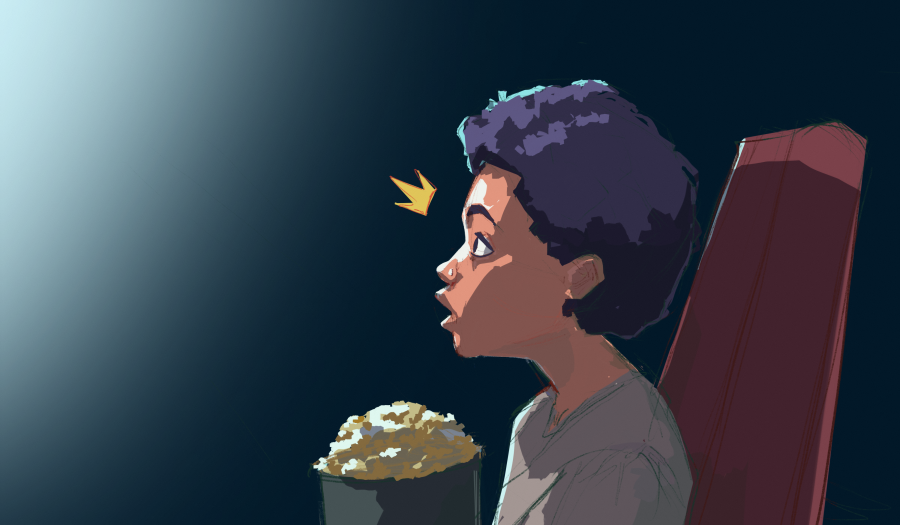As I’m sure you’ve noticed, there has been a recent trend by many large movie studios to tackle the complex topic of generational trauma. Some examples of this trend are clear in Pixar Animation Studios, which has produced “Coco,” “Encanto,” and “Turning Red” in its most recent cultural exploration era. This throughline in modern Pixar movies tackles aspects of generational trauma through a medium of some magical or spiritual aspect. These aspects make the familial pain come to light and also help bridge broken relationships and heal family structures. This trend is not unique to Pixar though, as A24 has recently released “Everything Everywhere All At Once,” which tackles this trauma through an interdimensional journey to discover the absurdity of life and how love makes it meaningful. Even Netflix has released a series relevant to this trend in its second season of “Russian Doll,” building off its initial season of “Groundhog Day”-esque soul searching, which has its main characters travel in time, physically inhabit their older generations, and learn that the past is unchangeable yet intentional.
So with all this being said about who is tackling generational trauma in movies, what is it really? According to the National Library of Medicine, the term originates from a study on the transgenerational effects of trauma in the offspring of Holocaust survivors, which found that “not only traumatic experiences, but also resilience patterns can be transmitted to and developed by the second generation.” The term now refers to the way that substances, events, and beliefs of traumatic impact and emotional turmoil get passed down through familial generations. The scope of what can be passed down ranges from physical or substance abuse, neglect, the effects of war, and addiction. Whether viewed through epigenetics, which describes how certain events can impact gene expression, or how children absorb the environment around them, how trauma from one generation can cause lasting effects of trauma for following generations.
This difficult topic has taken center stage in cinema, begging the question of its value and necessity. What is the purpose of digging up the past and dealing with the issues that are ingrained into cultural and familial heritage? This question presents some valid criticisms of this type of movie and hits at the root of the purpose of film and media as a form of entertainment and a chance to escape from reality for a few hours.
For people like Samantha Amantea, a Roger Revelle College sophomore, this trend “can be damaging in how it’s presented because it simplifies a multifaceted issue and ties it in a bow by the film’s end.” For Amantea, “the themes of unity and discovery are cliche” and the “Disney ending of a happily ever after” is too plain and ”predictable.” She criticizes the structure of this trend in the media because “there are many people whose generational trauma is impossibly difficult to tackle.” Amantea details a few complications such as “death, abuse, political polarization, and separation from family” that make it difficult to “make amends, to forgive, or want to re-engage with the trauma.”
Others like Ahla Lotti, a Seventh College sophomore, argue that this trend is “overdone already.”
“It is only written into film because it seems to add depth of meaning,” Lotti said. “placing a given family at the head of generational trauma, especially when this family comes from a minority background, means that they come to inhabit the culture as a whole and that the depicted narrative can be both stereotypical and fail to contend with important aspects of generational and cultural trauma.”
Both of these interpretations get at the root of what’s intended with this genre of film. Although these movies can seem like they can make light of repairing generational trauma or can come to represent a group without intending to, the message that they want to give off is one of wholesomeness. The purpose of movies like this is to escape from your daily life into something more entertaining, more cathartic, more simple and sometimes to inspire values in its audience. Sometimes this escape requires simplification and a specific perspective that some people may not be able to resonate with.
When I think of why these movies are being made to tackle generational trauma in an increasingly divided world, it seems that the purpose is to escape from the pain that many people feel within their families and to instill in the audience a sense of peace, open-mindedness, and closure.
I understand that for many people, this generational trauma is static and unchangeable, but the vision of this trend is to inspire hope for a more compassionate, unified future. Even if it neglects the concept of found family and emphasizes family as unreasonably important, it allows the audience to escape into a world where their problems are absent and their focus can shift to a story of growth — even when their family, generations, and cultural background may feel like they are withering and distant.
Art by Nicholas Regli for The UCSD Guardian.















wheel spinner • Jul 4, 2022 at 7:30 pm
I am really happy to have found this site at last. Really informative and meaningful activities, Thanks for the post and effort! Please continue to share more as a blog. I have now saved it to my bookmarks so I can keep in touch with you.